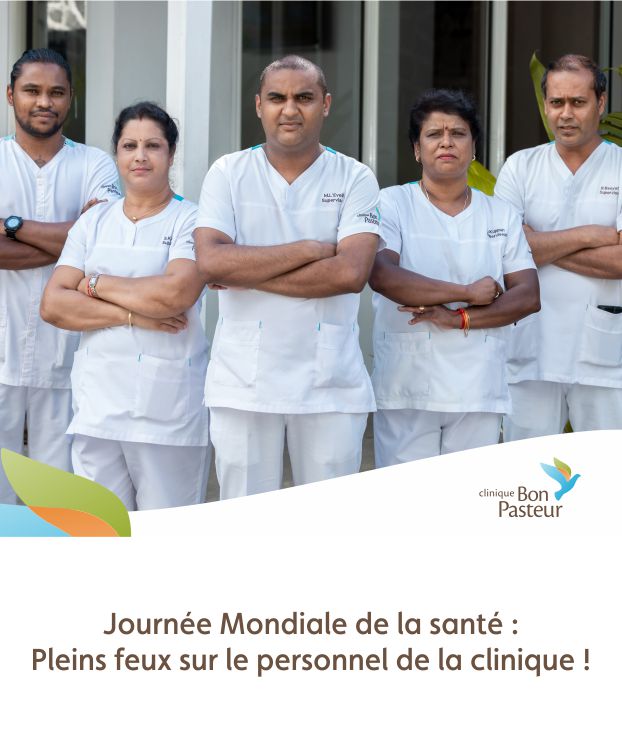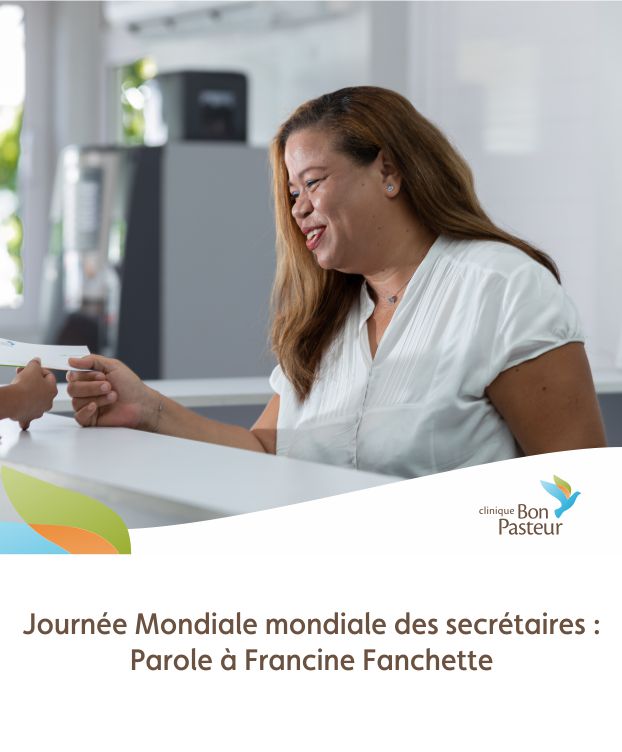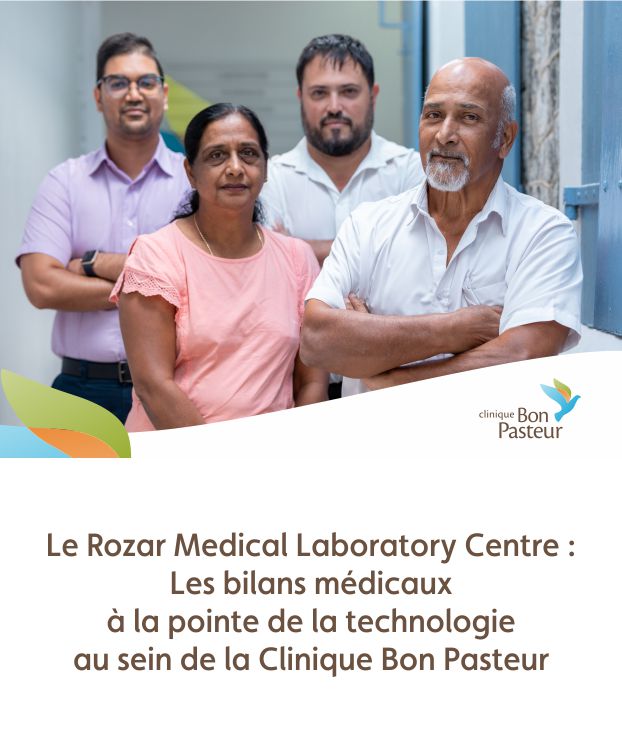This week has seen the celebration of the World Health Day. What a great opportunity to pay tribute to people working in the health sector, especially in this global health crisis era. However, as tributes have been paid across the globe to medical staff, we would like to highlight the role of our non-medical staff as well, so essential to the clinic’s smooth running.
Have you ever wondered why some people choose a health sector career? Salary or job security maybe? Not at all, according to some of Clinique Bon Pasteur’s staff members, who all agree on one thing. “It is a vocation, which can only be done if one likes this work, and above all, if one likes taking care of others,” says Michael L’Eveillé, Clinique Bon Pasteur’s Medical Supervisor. Thierry Fanchette, IT Manager at the clinic, agrees “It really is a vocation, even if it means taking risks, especially in this Covid era. You need to like what you have to do here”. Same thing for Frédéric Jean-Louis, Accounts Clerk at the clinic: “For me, it’s like working in the humanitarian field. I worked for several years in an NGO before joining Clinique Bon Pasteur”.
Patricia Ducray, Debt Collector at the clinic, goes even further. According to her, it is not just a matter of working in the health sector, but specifically at Clinique Bon Pasteur: “It is a family clinic, and there is a special bonding between members of the staff “. Her colleagues who have to work on site are actually on her mind every single day, as they are exposing themselves while working: “The management of the clinic allows some of us to work from home, and I am lucky to be one of them.” Frédéric Jean-Louis is also grateful to the clinic for allowing this: “Some of us help our colleagues remotely to move the work forward while working from home”.
Throughout their career at Clinique Bon Pasteur, our colleagues have lived different experiences, having been deeply moved by some of them. For Patricia Ducray, the pain associated with the death of a patient is always hard, but she is also overwhelmed with joy for every new born at the clinic. As for Michael L’Eveillé, he always draws his energy from situations like a smiling recovered patient who leaves the clinic after having been admitted a couple of days before in a semi-comatose state.
What is striking is the collaboration between colleagues within different departments. Staff members are regularly helping each other, facing challenges together, and developing other skills at the same time. Beyond his IT responsibilities, Thierry Fanchette also helps with accounting, especially for payroll. He also tries, as a supervisor, to provide psychological support to his colleagues in this health crisis era, to show that the management is there to support the staff. As for Michael L’Eveillé, he is facing a new situation these days, namely that of comforting patients who come to the clinic, not only with a clinical need, but also with an anxiety related to the risk of a Covid exposure. He sees himself as being more active in morally supporting patients these days, specifically with regards to this Covid related anxiety. And a memorable situation for Fréderic Jean-Louis is undoubtedly the day he had to leave his ledger book to support colleagues who were assisting a woman giving birth to her child in a vehicle in the clinic’s parking lot, the baby being undoubtedly in a real hurry to see the light of day!
But the most beautiful words from one of our interviewees, the most appropriate summary and conclusion to this glimpse into health-related professions come from Michael l’Eveillé: “In this profession, we are here to take care of people, and above all, the human touch is the most important thing ”, in line with the true values of Clinique Bon Pasteur!


